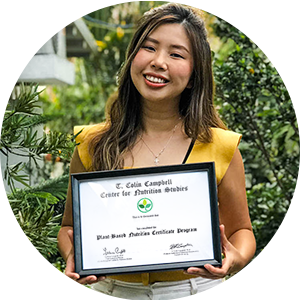
This is a story about food, science, and love.
It began with the words, “Just make her comfortable”—words nobody wants to hear a doctor say about a loved one. We all know it is code for, “The end is close, and you can do nothing about it.” I know the sinking frustration of these words firsthand. In 2011, at 80 years old, my mother, Millie, was released from the hospital. Her doctor suggested we get her affairs in order, get help (hospice care), and the dreaded, ”Make her comfortable.”
She had congestive heart failure with an EF (ejection fraction) hovering around 10 percent and dipping. A host of other problems followed, including kidney infections and lung problems. She was too weak for surgery, and we were running out of hope.
We’re a close family. I couldn’t reconcile that my mom, a once vibrant woman, avid tennis player, and a bit of a health nut, was now dying. Out of desperation, I searched on Google for Surviving late-stage congestive heart failure.
I came across the research of Dr. T. Colin Campbell and Dr. Caldwell Esselstyn and read everything I could about how a whole food, plant-based (WFPB) diet could prevent and possibly reverse heart disease.
It made intuitive sense to me. Eat real food, and your body will move toward health. But could it change the course of heart disease in a very sick, old heart?
I brought Mom home to live with me in a small, renovated apartment in our garage. We started with smoothies and blended soups because she was too weak to try anything else. We worked our way up from there—replacing the meat, cheese, and dairy with fruits, vegetables, grains, and legumes.
We saw improvement almost immediately, but her health was a delicate ecosystem, and it didn’t take much to send her back to the Intensive Care Unit (typically, a bout of dehydration).
We just kept giving her WFPB meals, and even with occasional dips in her health, she improved. We first thought she had months to live, but within those months of eating a whole food, plant-based diet, the color returned to her face, her appetite increased, and she could get up and walk from the bed to the bathroom without assistance. Best of all, she could hold my newborn daughter.
Each year—yes, each year—she got better still. When we brought her back to see her cardiologist, the same who had prepared us for hospice care, we found her heart function (EF) was now at 45 percent.
Now at 86, she swims four times a week, drives (yikes!), and lives a very full life.
The experience changed all of us. Because I was cooking for my mom, my family also transitioned to a WFPB diet. Within weeks my chronic fatigue and beginnings of macular degeneration cleared up. My partner, Lisa, saw her blood pressure go from its usual 155/110 to 127/80.
I needed to understand what was happening to us. Specifically, WHY do plant-based foods have such profound health benefits? I went back to where it all started for me. I enrolled in the T. Colin Campbell Center’s Plant-Based Nutrition Certificate. I wanted to get a basic foundation in the scientific research supporting a plant-based diet for optimal health, and I did; it was during this course that I came to understand that so many of us don’t have to live with illness and pain. My eyes were opened to diet’s critical role in preventing and reversing common chronic diseases like diabetes, heart disease, and cancer.
The Plant-Based Nutrition Certificate was a game changer for me. If I could, I would have everyone I know go through it.
People often call my mother’s recovery a miracle. And while I understand the sentiment, I believe the miraculous thing may be that so many illnesses could be avoided if people could only move from foods that hurt to foods that heal.
But as they say, it wasn’t all kittens and rainbows. For us, changing our diet did not come without its own difficulties. One of the major problems we found with eating this way is that you need to spend a lot of time in the kitchen, preparing and chopping ingredients, and the recipes and taste profiles were unfamiliar.
We wondered if there was an easier way to eat healthy. Was there a company out there that would prepare fresh and hearty plant-based foods for us—then deliver them to our door? Our search for one came up empty.
And so a business was born. Lisa was the former owner and longtime CEO of Vermont Bread Company, and so we decided to put our organic food background to use again, this time with a mission to make eating a WFPB diet easy.
In the fall of 2016, we launched MamaSezz.com, a plant-based meal delivery service out of Keene, New Hampshire. Delivering nationwide, we’re a resource for those who want to eat healthy meals but don’t necessarily have the time, energy, or know-how to prepare food on their own. We take the hassle out of eating well by delivering hearty and delicious plant-based meals to your door, already cooked.
For us, it’s about so much more than quick and easy meals. We’re committed to working with medical professionals, scientists, and nutritionists to bring the healing power of food to everyone.
Copyright 2024 Center for Nutrition Studies. All rights reserved.
